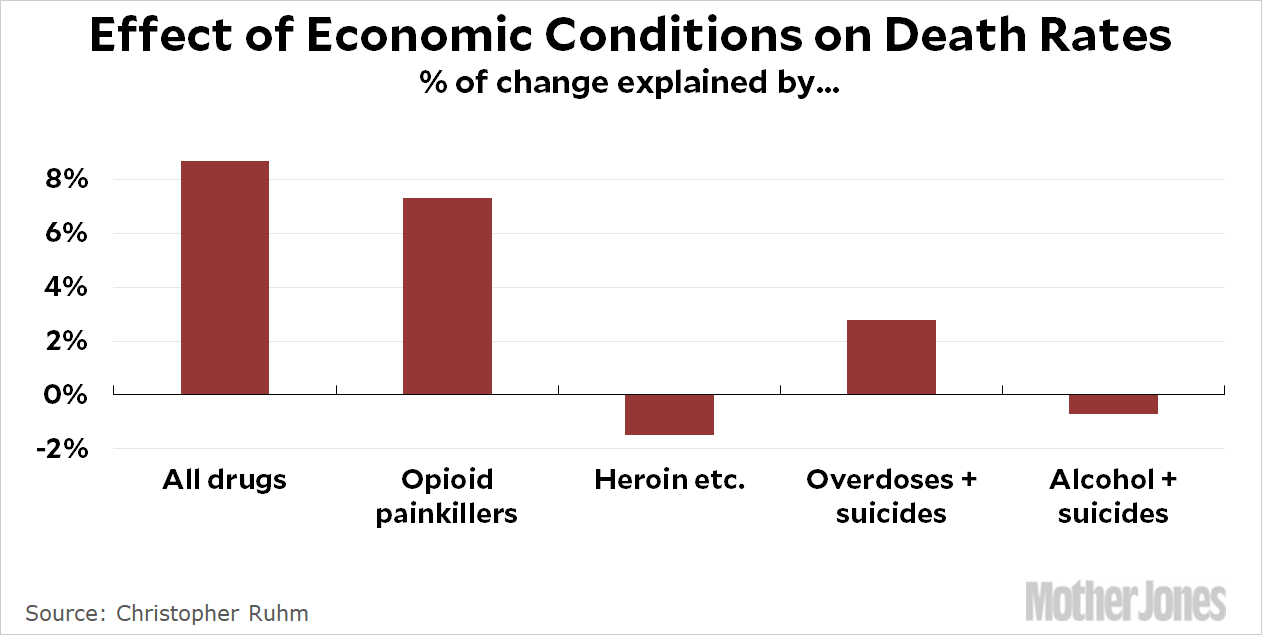How much has the opioid epidemic been a response to poor economic conditions? Eric Levitz points us today to a new paper from Christopher Ruhm of the University of Virginia. He examined changes in economic conditions at the county level to see how much this explained the change in death rates from opioids. In order not to keep you in suspense, the answer is “not much”:

Economic conditions explained only 8 percent of the change in overdose deaths from all drugs and 7 percent of the change in deaths from opioid painkillers—and even that small effect probably goes away if you control for additional unobservable factors. It explained none of the change in deaths from heroin, fentanyl, and other illegal opioids. Ruhm comments:
These results suggest that the “deaths of despair” framing, while provocative, probably do not explain the main sources of the fatal drug epidemic and imply that efforts to improve economic conditions in distressed locations, while desirable for other reasons, are unlikely to yield significant reductions in drug mortality. Such results probably should not be surprising since drug fatalities increased substantially – including a rapid acceleration of illicit opioid deaths – after the end of the Great Recession (i.e. subsequent to 2009), when economic performance considerably improved.
Ruhm concludes that the real reason for the rise in deaths from opioids is simple: it’s because they were there. We’ve long known that illicit drugs are faddish—heroin in the 70s, cocaine in the 80s, marijuana in the 90s—and the fads depend a lot on which drugs are in wide supply. In this case, when the supply of OxyContin skyrocketed, so did overdose deaths from OxyContin. Ditto for fentanyl, the current scourge. Wait a decade and it will be something else.
















